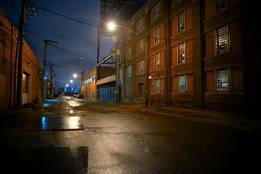curfew
noun
cur·few
ˈkər-(ˌ)fyü 

plural curfews
1
: the sounding of a bell at evening
2
a
: a regulation enjoining the withdrawal of usually specified persons (such as juveniles or military personnel) from the streets or the closing of business establishments or places of assembly at a stated hour
The city ordered a curfew to prevent further rioting.
b
: a requirement that someone (typically a child) be home by a particular time
Instead, [parents] should make a point of enforcing curfews and standards of behavior that reflect their family's values …— Pam Carroll
Pam Carroll
 Pam Carroll
Pam Carroll
c
: a signal to announce the beginning of a curfew
d
: the hour at which a curfew becomes effective
Austerity has come to Rome, with a midnight curfew, car-less Sundays …— Women's Wear Daily
Women's Wear Daily
 Women's Wear Daily
Women's Wear DailyShe began to cry because it was past curfew and she was certain her momma would kill her when she got home.— Susan Soo-Hyun Chung
Susan Soo-Hyun Chung
 Susan Soo-Hyun Chung
Susan Soo-Hyun Chung
e
: the period during which a curfew is in effect
Love words? Need even more definitions?
Merriam-Webster unabridged











Share